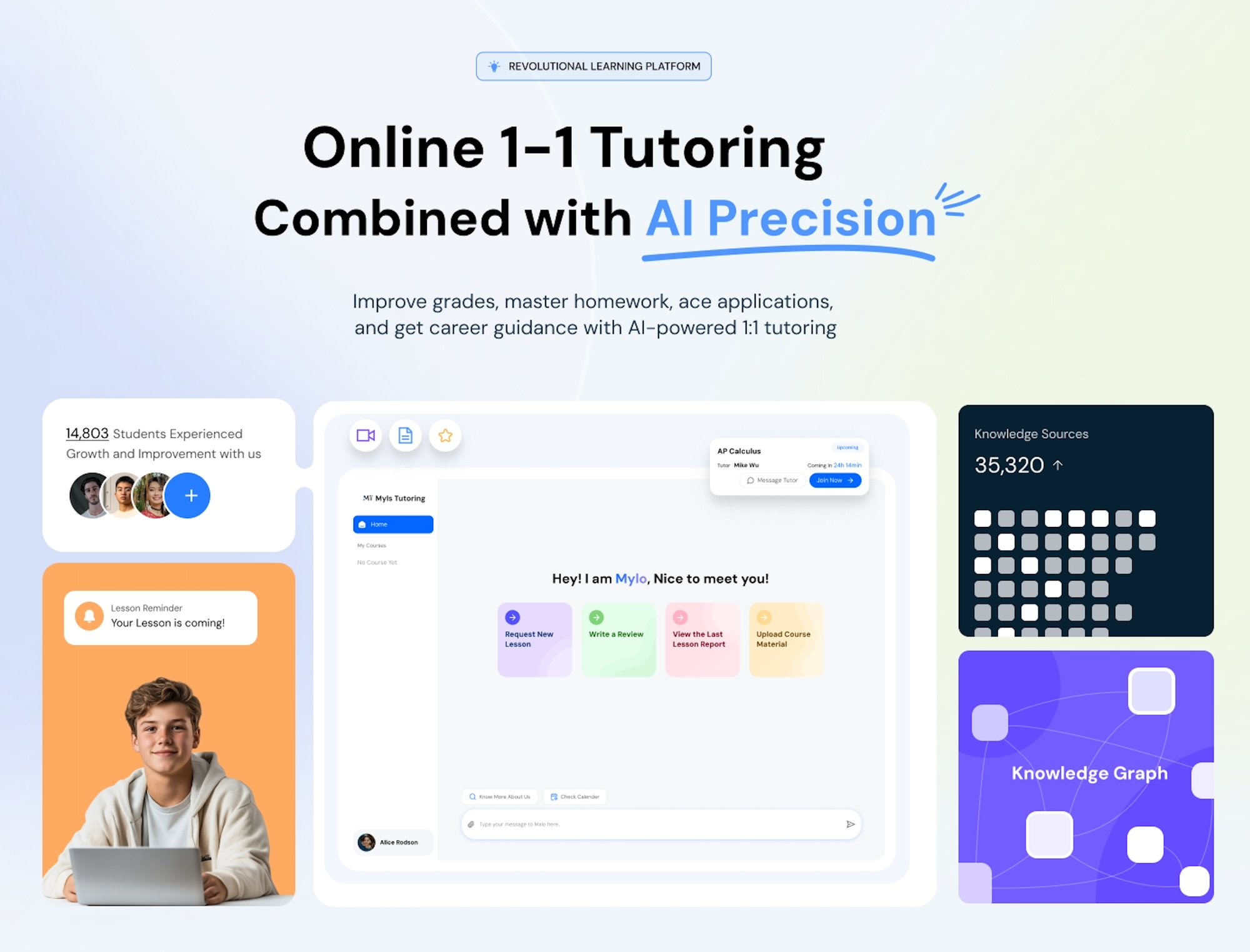Ace the Transition: How to Build Study Habits for University-Level Learning
University success isn’t just about smarts—it’s about habits. Learn how to develop time management, note-taking, and study strategies in high school that prepare you for college. Myls Tutoring helps students build these habits before they make the leap.

Making the leap from high school to university is one of the most exciting—and challenging—academic transitions a student will face. The coursework becomes more demanding, expectations for independence rise, and the ability to self-manage time, stress, and study load becomes essential. Students who thrive in this environment are not always the smartest, but often the most prepared with strong study habits in place.
Many students enter university having mastered test preparation or assignment deadlines within the structured environment of high school. But college learning looks different: fewer classes, larger assignments, more independent research, and longer-term projects. Without the right habits, students can quickly become overwhelmed. That’s why it’s critical to start developing these skills during the last years of high school—well before classes begin.
Why Study Habits Matter More Than Ever
At university, students are responsible for organizing their own schedules, managing competing deadlines, and understanding complex material—often without direct guidance. Professors may not check in regularly. Assignments may span several weeks. And exams may require synthesizing months of content, not just last-minute review.
Effective study habits are the tools that turn academic pressure into productive action. They help students:
- Break large assignments into smaller tasks
- Stay organized and avoid last-minute cramming
- Retain more information over time
- Feel less overwhelmed and more in control
- Build confidence and academic independence
Start with Time Management
Time is a student’s most limited—and valuable—resource. In university, students must learn how to structure their own days, prioritize commitments, and plan long-term.
Key strategies include:
- Time blocking: Breaking the day into chunks for reading, lectures, study, and rest helps prevent aimless scrolling or wasted time between classes.
- Semester planning: Using a calendar to map out deadlines, exams, and projects from day one allows students to see when their busiest weeks will be—and plan accordingly.
- The Pomodoro Technique: Working in focused 25-minute intervals with short breaks increases productivity and focus without burnout.
Students who learn these strategies in high school often enter university with a head start in managing their workload and staying on top of tasks.
Mastering Note-Taking and Active Listening
University lectures move fast, and effective note-taking becomes a core academic skill. High school often teaches students to copy what’s on the board, but university demands deeper listening and synthesis.
Students should explore methods like:
- Cornell notes: Dividing notes into cues, summaries, and content to encourage review and reflection.
- Mind mapping: For visual learners, this strategy helps organize complex topics and show how ideas are connected.
- Digital annotation: Learning to use tools like OneNote or Notion can help students keep their notes searchable, sharable, and structured.
Developing these habits in high school builds the foundation for retaining and organizing large amounts of information in college-level lectures and seminars.
Practice Spaced Repetition, Not Cramming
One of the most common pitfalls in university is relying on cramming before exams. While it may work short term, it rarely supports long-term retention or deep understanding.
Spaced repetition—reviewing material at increasing intervals over time—is proven to improve memory and comprehension. Students can use flashcards (like Anki), study calendars, or review games to revisit topics gradually.
Starting this habit early allows students to absorb knowledge more effectively and reduce last-minute stress. It also mirrors how many upper-level university exams are designed—testing understanding across a whole semester, not just a single unit.
Learn to Read and Think Critically
University learning isn’t about memorization—it’s about engaging with ideas. Students are expected to read dense texts, analyze arguments, and form their own interpretations. In many first-year courses, the ability to critically read and write is a key predictor of success.
To prepare, students can begin:
- Annotating articles and textbooks: Highlighting key arguments, asking questions in the margins, and summarizing after each chapter
- Engaging in class discussions: Practicing how to express ideas and respond to others’ perspectives builds the confidence needed for seminar courses
- Writing reflections and analytical essays: The more students write with a clear point of view, the better they understand how to construct arguments
Critical reading and writing are habits built over time—not overnight. High schoolers who work on this early are more equipped for university’s academic rigor.
Develop Independence Through Accountability
In high school, parents and teachers often help students stay on track. At university, the accountability shifts entirely to the student. That shift can be overwhelming if students haven’t developed internal motivation, routines, and self-reflection strategies.
Students can start building independence by:
- Setting their own weekly goals (and checking in on them)
- Using habit trackers or bullet journals to measure progress
- Reflecting on what study environments work best for them
- Asking for help when needed—without waiting until it’s too late
Learning how to manage one's own learning is perhaps the most essential study habit of all.
How Myls Tutoring Supports University-Level Study Habits Early

At Myls Tutoring, we believe the best time to build university-ready habits is before you arrive on campus. That’s why Myls online tutoring session isn’t just focused on grades—it’s focused on growth.
Here’s how Myls online tutoring services help students bridge the high school-university gap:
✅ Personalized Habit Coaching: Our online tutors don’t just teach content—they help students build time management skills, set learning goals, and develop consistent routines that prepare them for long-term academic success.
✅ Critical Thinking and Writing Support: Through courses like the News and Views Critical Reading course and essay writing support, students learn how to dissect texts, express their own ideas clearly, and construct arguments with evidence—skills needed in every faculty.
✅ Flexible, Independent Learning: Our online tutoring platform allows students to practice scheduling, managing their own learning progress, and accessing sessions when they need support most. It’s the perfect environment to build independence while still having a mentor by your side.
✅ Study Skills Built In: From note-taking strategies to spaced repetition techniques, we integrate study skill coaching into every session—helping students walk away not only with better grades but with better habits.
Students who work with Myls Tutoring don’t just get tutoring—they gain a strategic, skills-based approach to learning that supports their journey into post-secondary education and beyond.
🎓 Ready to prepare for success beyond high school?
Book a trial lesson today with Myls Tutoring and start building the study habits that set you apart in university and life!




